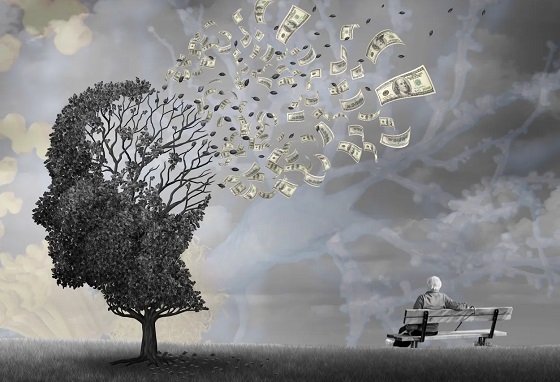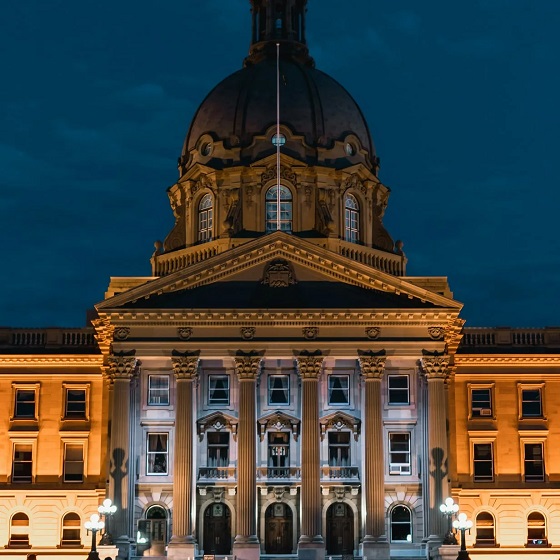Uncategorized
U.S. voting system faces test on Election Day
ATLANTA — Federal and state officials have been working for nearly two years to shore up the nation’s election infrastructure from cyberattacks by Russians or others seeking to disrupt the voting process.
It turns out that many of the problems are closer to home.
Early voting leading up to Tuesday’s midterm election revealed a wide variety of concerns with voting and registration systems around the country — from machines that changed voter selections to registration forms tossed out because of clerical errors.
Election officials and voting rights groups fear that voter confidence in the results could be undermined if such problems become even more widespread on Election Day, as millions of Americans head to the polls to decide pivotal races for Congress and governor.
Already there is concern that last-minute court rulings on voter ID requirements, the handling of absentee ballots and other issues in a handful of states will sow confusion among voters and poll workers.
“We expect poll workers will be overwhelmed, just as voters are overwhelmed, and there will be lots of provisional ballots,” said Sara Henderson, head of Common Cause in Georgia, where voting-rights groups have been raising numerous concerns about election security and voter access.
The problems come amid a surge of interest, with registrations and early-voting turnout running well ahead of what is typically seen during a midterm election.
As Election Day voting began across the East Coast, there were scattered reports of long lines and some polling places not opening on time, which are not unusual problems in any election.
The election marks the first nationwide voting since Russia targeted state election systems in the 2016 presidential race. Federal, state and local officials have been working to make the nation’s myriad election systems more secure. They have beefed up their cybersecurity protections and improved communications and intelligence-sharing.
The U.S. Department of Homeland Security, FBI and other federal agencies have opened a command
“We want them to be as informed as possible,” said Matt Masterson, senior cybersecurity adviser with the Department of Homeland Security.
There have been no signs so far that Russia or any other foreign actor has tried to launch cyberattacks against voting systems in any state, according to federal authorities. There was also no indication that any systems have been compromised that would prevent voting, change vote counts, or disrupt the ability to tally votes, U.S. officials said.
But early voting and voter registration has been problematic in a number of states. Problems include faulty machines in Texas and North Carolina, inaccurate mailers in Missouri and Montana, and voter registration problems in Tennessee and Georgia.
In other states, including Kansas, Election Day polling places have been closed or consolidated, leading to worries that voters will be disenfranchised if they can’t find a way to get there and cast a ballot.
Questions about election integrity erupted in recent days in Georgia, where the governor’s race is among the most closely watched elections in the country.
Over the weekend, reports of security vulnerabilities within the state’s online voter registration portal prompted a flurry of accusations from the Secretary of State’s office, which is overseen by Republican gubernatorial candidate Brian Kemp. His office claimed without providing evidence that Democrats had tried to hack into the system. Democrats dismissed that as an effort to distract voters from a problem in a system Kemp oversees.
DHS officials have boasted that the 2018 midterms will be the most secure election in U.S. history, pointing to federal intrusion-detection sensors that will protect “90
But similar sensors used at the federal level have performed badly. According to a Sept. 14 letter from the Office of Management and Budget, those sensors had a 99
Nationally, some 6,500 poll watchers are being deployed by a coalition of civil rights and voting advocacy groups to assist people who encounter problems at the polls. That is more than double the number sent to polling places in 2016, while the number of federal election monitors has declined.
___
Long reported from Washington. AP writer Michael Balsamo contributed to this story.
___
Follow Christina Almeida Cassidy at https://twitter.com/AP_Christina and Colleen Long at http://twitter.com/ctlong1 .
___
For AP’s complete coverage of the U.S. midterm elections: http://apne.ws/APPolitics
Christina A. Cassidy And Colleen Long, The Associated Press
Uncategorized
Cost of bureaucracy balloons 80 per cent in 10 years: Public Accounts

The cost of the bureaucracy increased by $6 billion last year, according to newly released numbers in Public Accounts disclosures. The Canadian Taxpayers Federation is calling on Prime Minister Mark Carney to immediately shrink the bureaucracy.
“The Public Accounts show the cost of the federal bureaucracy is out of control,” said Franco Terrazzano, CTF Federal Director. “Tinkering around the edges won’t cut it, Carney needs to take urgent action to shrink the bloated federal bureaucracy.”
The federal bureaucracy cost taxpayers $71.4 billion in 2024-25, according to the Public Accounts. The cost of the federal bureaucracy increased by $6 billion, or more than nine per cent, over the last year.
The federal bureaucracy cost taxpayers $39.6 billion in 2015-16, according to the Public Accounts. That means the cost of the federal bureaucracy increased 80 per cent over the last 10 years. The government added 99,000 extra bureaucrats between 2015-16 and 2024-25.
Half of Canadians say federal services have gotten worse since 2016, despite the massive increase in the federal bureaucracy, according to a Leger poll.
Not only has the size of the bureaucracy increased, the cost of consultants, contractors and outsourcing has increased as well. The government spent $23.1 billion on “professional and special services” last year, according to the Public Accounts. That’s an 11 per cent increase over the previous year. The government’s spending on professional and special services more than doubled since 2015-16.
“Taxpayers should not be paying way more for in-house government bureaucrats and way more for outside help,” Terrazzano said. “Mere promises to find minor savings in the federal bureaucracy won’t fix Canada’s finances.
“Taxpayers need Carney to take urgent action and significantly cut the number of bureaucrats now.”
Table: Cost of bureaucracy and professional and special services, Public Accounts
| Year | Bureaucracy | Professional and special services |
|
$71,369,677,000 |
$23,145,218,000 |
|
|
$65,326,643,000 |
$20,771,477,000 |
|
|
$56,467,851,000 |
$18,591,373,000 |
|
|
$60,676,243,000 |
$17,511,078,000 |
|
|
$52,984,272,000 |
$14,720,455,000 |
|
|
$46,349,166,000 |
$13,334,341,000 |
|
|
$46,131,628,000 |
$12,940,395,000 |
|
|
$45,262,821,000 |
$12,950,619,000 |
|
|
$38,909,594,000 |
$11,910,257,000 |
|
|
$39,616,656,000 |
$11,082,974,000 |
Uncategorized
Trump Admin Establishing Council To Make Buildings Beautiful Again


From the Daily Caller News Foundation
By Jason Hopkins
The Trump administration is creating a first-of-its-kind task force aimed at ushering in a new “Golden Age” of beautiful infrastructure across the U.S.
The Department of Transportation (DOT) will announce the establishment of the Beautifying Transportation Infrastructure Council (BTIC) on Thursday, the Daily Caller News Foundation exclusively learned. The BTIC seeks to advise Transportation Secretary Sean Duffy on design and policy ideas for key infrastructure projects, including highways, bridges and transit hubs.
“What happened to our country’s proud tradition of building great, big, beautiful things?” Duffy said in a statement shared with the DCNF. “It’s time the design for America’s latest infrastructure projects reflects our nation’s strength, pride, and promise.”
“We’re engaging the best and brightest minds in architectural design and engineering to make beautiful structures that move you and bring about a new Golden Age of Transportation,” Duffy continued.
Mini scoop – here is the DOT’s rollout of its Beautifying Transportation Infrastructure Council, which will be tasked with making our buildings beautiful again. pic.twitter.com/
9iV2xSxdJM — Jason Hopkins (@jasonhopkinsdc) October 23, 2025
The DOT is encouraging nominations of the country’s best architects, urban planners, artists and others to serve on the council, according to the department. While ensuring that efficiency and safety remain a top priority, the BTIC will provide guidance on projects that “enhance” public areas and develop aesthetic performance metrics.
The new council aligns with an executive order signed by President Donald Trump in August 2025 regarding infrastructure. The “Making Federal Architecture Beautiful Again” order calls for federal public buildings in the country to “respect regional architectural heritage” and aims to prevent federal construction projects from using modernist and brutalist architecture styles, instead returning to a classical style.
“The Founders, in line with great societies before them, attached great importance to Federal civic architecture,” Trump’s order stated. “They wanted America’s public buildings to inspire the American people and encourage civic virtue.”
“President George Washington and Secretary of State Thomas Jefferson consciously modeled the most important buildings in Washington, D.C., on the classical architecture of ancient Athens and Rome,” the order continued. “Because of their proven ability to meet these requirements, classical and traditional architecture are preferred modes of architectural design.”
The DOT invested millions in major infrastructure projects since Trump’s return to the White House. Duffy announced in August a $43 million transformation initiative of the New York Penn Station in New York City and in September unveiledmajor progress in the rehabilitation and modernization of Washington Union Station in Washington, D.C.
The BTIC will comprise up to 11 members who will serve two-year terms, with the chance to be reappointed, according to the DOT. The task force will meet biannually. The deadline for nominations will end Nov. 21.
-

 Business17 hours ago
Business17 hours agoRecent price declines don’t solve Toronto’s housing affordability crisis
-

 Bruce Dowbiggin2 days ago
Bruce Dowbiggin2 days agoSometimes An Ingrate Nation Pt. 2: The Great One Makes His Choice
-

 National2 days ago
National2 days agoMedia bound to pay the price for selling their freedom to (selectively) offend
-

 Daily Caller16 hours ago
Daily Caller16 hours agoTech Mogul Gives $6 Billion To 25 Million Kids To Boost Trump Investment Accounts
-

 C2C Journal2 days ago
C2C Journal2 days agoLearning the Truth about “Children’s Graves” and Residential Schools is More Important than Ever
-

 Business2 days ago
Business2 days agoWhy Isn’t There a Cure for Alzheimer’s Disease?
-

 armed forces1 day ago
armed forces1 day agoGlobal Military Industrial Complex Has Never Had It So Good, New Report Finds
-

 Alberta2 days ago
Alberta2 days agoNew era of police accountability










